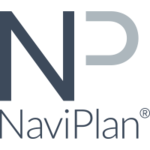Description

DiligenceVault

Ledgy
Comprehensive Overview: DiligenceVault vs Ledgy
DiligenceVault and Ledgy are two distinct platforms that cater to specific needs within financial services and equity management. Here's an overview of both:
DiligenceVault
a) Primary Functions and Target Markets:
- Primary Functions: DiligenceVault is a digital due diligence platform primarily used for investment management and risk assessment. It facilitates the collection, exchange, and analysis of due diligence data. The platform streamlines information gathering and sharing between asset managers, investors, and due diligence teams. It offers features such as automation of questionnaires, analytical tools, compliance checks, and data storage.
- Target Markets: The platform is primarily targeted at financial institutions, including asset managers, fund managers, institutional investors, and consultants engaged in investment due diligence.
b) Market Share and User Base:
- DiligenceVault is known to be integrated with a variety of financial institutions globally, but detailed statistics on market share and user base are typically not publicly disclosed. The platform is recognized by its presence in the fintech space, specifically in the realm of investment management solutions, making it a competitive choice among similar due diligence technologies.
c) Key Differentiating Factors:
- Comprehensive Due Diligence Automation: The automation and streamlining of due diligence processes are a significant differentiator.
- Collaborative Environment: Provides a collaborative platform where multiple stakeholders can interact, share, and communicate effectively.
- Advanced Analytics: Offers tools for in-depth analysis and reporting, enhancing decision-making processes.
Ledgy
a) Primary Functions and Target Markets:
- Primary Functions: Ledgy is an equity management platform designed to help businesses manage their cap tables, employee participation plans, and investor relations. It provides tools for equity plan management, reporting, and scenario modeling, helping businesses streamline the management of their stock ownership.
- Target Markets: Ledgy targets startups, scaleups, and established companies across various industries looking to efficiently manage their equity and employee stock options. It serves both private and public companies.
b) Market Share and User Base:
- Ledgy has become increasingly popular among startups and tech companies, especially in Europe, where it has a strong presence. Like DiligenceVault, specific market share data is usually not freely available, but it has been gaining traction due to its specialization in equity management.
c) Key Differentiating Factors:
- Equity Management Focus: Unlike traditional financial software, Ledgy is specialized in handling equity-related processes, making it a go-to platform for companies with complex equity structures.
- User-Friendly Interface: Known for its clean and intuitive user interface which is particularly beneficial for companies without large financial teams.
- Scenario Modeling: Provides robust tools for scenario modeling and forecasting, helping companies understand the implications of various equity strategies.
- Integrations and Scalability: Offers integrations with various HR and financial platforms, ensuring scalability as companies grow.
Comparison Summary
Market Share and User Base:
- Both platforms serve niche markets but cater to different specific needs within the financial ecosystem. DiligenceVault targets investors and financial institutions focusing on due diligence, while Ledgy serves companies (mostly startups and tech firms) with their equity management needs.
Key Differentiating Factors:
- Focus Areas: DiligenceVault is strongly positioned in due diligence and data management, while Ledgy is centered around equity management and cap table solutions.
- Technology and Features: The technologies and features of each platform are designed to cater to their specific market demands, with DiligenceVault emphasizing data automation and analytics, and Ledgy focusing on equity management and user experience.
Overall, the choice between these two platforms would depend heavily on an organization's specific needs—whether they require due diligence solutions or equity management tools.
Contact Info

Year founded :
Not Available
Not Available
Not Available
Not Available
Not Available

Year founded :
2017
+41 44 585 21 23
Not Available
United Kingdom
http://www.linkedin.com/company/ledgy
Feature Similarity Breakdown: DiligenceVault, Ledgy
DiligenceVault and Ledgy are software platforms serving different needs in the financial and investment sectors. DiligenceVault focuses on due diligence management, while Ledgy specializes in equity management for companies. Here’s a breakdown of their feature similarities and differences:
a) Core Features in Common
-
Data Management:
- Both platforms offer robust data management features. DiligenceVault provides tools for managing due diligence documentation and communications, whereas Ledgy focuses on managing equity data and cap tables.
-
Collaboration Tools:
- Both solutions offer collaboration features to enhance teamwork. DiligenceVault facilitates collaboration between investors and fund managers, while Ledgy allows for collaboration among startup teams, investors, and shareholders.
-
Security and Compliance:
- Both products ensure high levels of security and compliance in data handling, crucial for managing sensitive financial information.
-
Analytics and Reporting:
- Each platform provides analytics and reporting capabilities. DiligenceVault offers insights and reporting on due diligence processes, while Ledgy provides analytics on equity, ownership distributions, and funding rounds.
b) User Interface Comparison
-
DiligenceVault:
- DiligenceVault has a user interface designed for efficiency in managing multiple due diligence workflows. It focuses on document management, task tracking, and streamlined communication. The UI tends to be data-heavy, with a dashboard that allows users to monitor progress and manage tasks effectively.
-
Ledgy:
- Ledgy’s UI is designed to be intuitive for startup teams and investors, placing a strong emphasis on visualizing equity structures and ownership distributions. The interface is more graphical, with clear, visual representations of cap tables and funding scenarios, making complex data easier to understand.
c) Unique Features
-
DiligenceVault:
- Due Diligence Templates: Offers reusable templates for due diligence processes, saving time and ensuring consistency.
- Automated Workflows: Allows for the automation of due diligence workflows, helping users manage complex processes more efficiently.
- Integration with Various Data Sources: DiligenceVault integrates with numerous financial data providers to fetch and update financial data seamlessly.
-
Ledgy:
- Cap Table Management: Uniquely focuses on detailed cap table management, supporting round modeling, ESOPs, and future financing scenarios.
- Scenario Modeling: Features powerful tools for simulating financing rounds, exits, or dilutions, offering startups deep insights into future ownership scenarios.
- Employee and Investor Portals: Custom portals for stakeholders to view their holdings and track investment metrics, enhancing transparency and engagement.
In summary, while DiligenceVault and Ledgy share some core features such as data management and collaboration tools, they serve different aspects of financial management. DiligenceVault is more focused on due diligence processes, whereas Ledgy provides specialized tools for equity management and visualization. Each platform has its unique features catering to its specific user base.
Features

Not Available

Not Available
Best Fit Use Cases: DiligenceVault, Ledgy
DiligenceVault
a) Best Fit Use Cases for DiligenceVault:
-
Types of Businesses or Projects:
- Investment Management Firms: DiligenceVault is particularly well-suited for private equity firms, venture capitalists, hedge funds, and asset managers that require comprehensive due diligence processes.
- Institutional Investors: Organizations that need to streamline the collection and management of due diligence data from numerous funds and asset managers.
- Corporate Finance and M&A: Companies involved in mergers and acquisitions can leverage DiligenceVault for efficient data gathering and analysis during deal evaluations.
-
Key Features:
- A collaborative platform that allows the integration of information via templates, furnished with real-time analytics and reporting tools.
- Enhanced digital workflow for due diligence processes, improving accuracy and efficiency.
- Systematic collection and review of standardized data, reducing the risk of errors associated with manual data handling.
d) Industry Vertical and Company Size:
- Investment and Financial Services: Primarily targets large and mid-sized investment firms and institutions due to the scale and complexity of their due diligence requirements.
- Enterprise-level Solutions: Suits organizations with significant volume and complexity in data analysis, typically larger enterprises rather than small businesses.
Ledgy
b) Preferred Scenarios for Ledgy:
-
Types of Businesses or Projects:
- Startups and Growing Companies: It shines in environments where equity management and stakeholder transparency are crucial, such as within startups that are scaling and need to manage employee stock options and multiple funding rounds.
- Venture Capital and Angel Investors: Provides clarity and organization in managing cap tables and understanding share distribution.
-
Key Features:
- A scalable platform designed to handle intricate cap table management and employee equity plans.
- Seamless integrations for financial modeling, shareholder management, and compliance, fostering transparency.
- Offers valuation tools that are crucial for understanding equity distributions and potential scenarios in startups.
d) Industry Vertical and Company Size:
- Tech and Innovation Sectors: Commonly used by tech startups and firms in innovative sectors due to their frequent growth, funding rounds, and equity distribution needs.
- Suitable from Small to Medium Enterprises: Targets primarily small to medium-sized businesses, especially those undergoing rapid growth and requiring detailed equity management solutions.
Comparison
DiligenceVault and Ledgy cater to different organizational needs, with DiligenceVault focusing on complex data and due diligence processes within larger financial institutions, and Ledgy providing simplified equity and cap table management for startups and SMEs. Each tool is developed to solve industry-specific challenges, making them suitable for different operational scales and sectors.
Pricing

Pricing Not Available

Pricing Not Available
Metrics History
Metrics History
Comparing teamSize across companies
Conclusion & Final Verdict: DiligenceVault vs Ledgy
To provide a comprehensive conclusion and verdict on DiligenceVault and Ledgy, let's first consider each product's features, target audience, and value proposition. Both platforms serve different purposes within the financial and investment management sphere, but they can overlap depending on user needs.
Conclusion and Final Verdict
Overall Value
a) Considering all factors, which product offers the best overall value?
The best overall value depends on the user's specific needs:
- DiligenceVault is particularly advantageous for those who need a robust due diligence and data management platform, making it ideal for institutional investors, asset managers, and consultants who require streamlined workflows and data accuracy.
- Ledgy, on the other hand, caters more to startups and private companies by offering cap table management solutions, employee participation programs, and related analytics. It is invaluable for businesses focused on maintaining and managing equity efficiently.
Therefore, if your priority is efficient due diligence and data handling, DiligenceVault likely provides more value. Conversely, for equity management and startup-related functionalities, Ledgy would be the better choice.
Pros and Cons
b) What are the pros and cons of choosing each of these products?
DiligenceVault:
- Pros:
- Specializes in comprehensive due diligence processes.
- Offers robust integration options with other investment management tools.
- Strong data management and collaboration features designed for financial institutions.
- Supports extensive workflows to streamline data collection and analysis.
- Cons:
- May be overly complex for smaller firms or startups with simpler needs.
- Primarily suited for users within the investment management industry, limiting its applicability elsewhere.
Ledgy:
- Pros:
- Simplifies cap table management for startups and private companies.
- Provides detailed analytics on equity distribution and potential dilution scenarios.
- User-friendly interface designed for non-technical users, such as HR managers and founders.
- Supports global markets with compliance features tailored to different jurisdictions.
- Cons:
- Limited in scope if your focus is beyond equity management and startup operations.
- May lack the extensive due diligence capabilities that investment professionals require.
Specific Recommendations
c) Are there any specific recommendations for users trying to decide between DiligenceVault vs Ledgy?
-
Assess Your Needs:
- Investment Professionals: If your core need is managing workflows related to due diligence for investments, DiligenceVault is likely more suitable.
- Startup Founders or Equity Managers: If your main focus is managing and analyzing equity and employee shares, Ledgy offers tailored solutions for these tasks.
-
Consider Integration and Scalability:
- Both platforms offer integrations, but consider which system complements your existing tech stack effectively and can scale with your future needs.
-
Trial and Feedback:
- If feasible, trial both platforms for a short period with actual data to better understand their usability and how they cater to your workflow. Garner feedback from your team to inform your decision.
Ultimately, the choice between DiligenceVault and Ledgy hinges on aligning their features with your operational priorities. Users should evaluate their current and future needs, the complexity of their operations, and their industry-specific requirements to make an informed decision.



